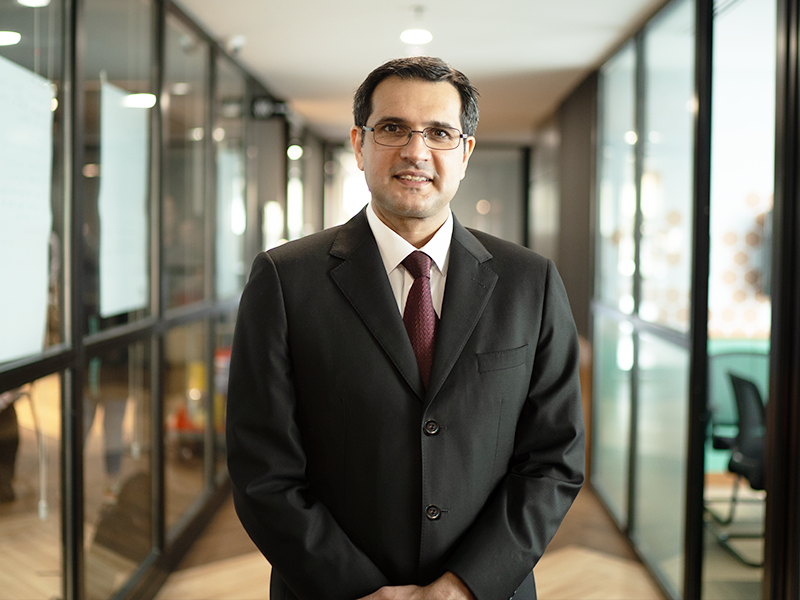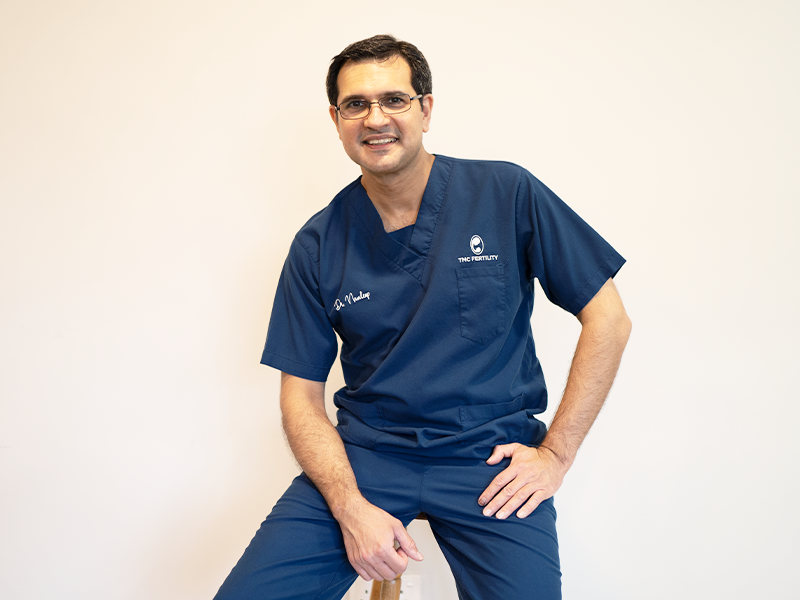“I believe everybody has a chance to build a family.”
The global fertility crisis is undoubtedly real. According to a recent report from the World Health Organization (WHO), approximately a staggering 17.5% of the adult population experiences infertility at some point in their lives. It is a deeply personal and emotional struggle. Fortunately, advancements in fertility science and assisted reproductive techniques, such as IVF, offer renewed hope for couples facing this journey. In this article Dr. Navdeep Singh Pannu, President of Malaysian Society for Assisted Reproductive Technology (MSART), shares his perspective on the dynamic landscape of reproductive medicine and the renewed hope for prospective parents.
When discussing the evolution of in vitro fertilisation (IVF) over the past decade, Dr. Navdeep Singh Pannu believes that it has undergone significant advancements, offering a fresh wave of hope to individuals and couples dealing with fertility challenges. The key developments include refined egg freezing techniques, particularly the introduction of vitrification – a flash-freezing method that minimises damage to delicate eggs. This makes fertility preservation, particularly for cancer patients, single women, and those desiring to delay parenthood, more accessible. Another significant evolution he mentions is in the field of genetic testing, which has improved embryo selection, boosting success rates and reducing pregnancy risks. Cultivating embryos to the blastocyst stage before implantation has further enhanced IVF’s effectiveness. These innovations have transformed IVF into a reliable option, promising a brighter future for those seeking to overcome infertility.
The trend of fertility tourism – which refers to the seeking of fertility treatments abroad – is gaining momentum. The primary drive for engaging in fertility tourism often stems from limited resources and elevated expenses. Additionally, cultural, religious, legal, safety, and effectiveness concerns also play a role. Particularly in Asia, countries that are well sought out destinations for infertility treatments include India, Malaysia, and Thailand to name a few.
According to Dr. Navdeep, fertility tourism widens the horizons for individuals and couples pursuing advanced fertility treatments. “It often becomes a pathway to overcoming past treatment failures and offers a gateway to unparalleled expertise, as well as access to specialised treatments and technologies that might not be readily available in one’s homeland”, he adds. Beyond the clinical aspect, it offers a change of environment and a global support network, enhancing emotional well-being – a crucial facet of the fertility journey.
In the field of fertility care, ensuring equitable access is a paramount concern. In Dr. Navdeep’s view, a pivotal strategy to promote inclusivity for all lies in fostering healthy collaborations among all stakeholders involved. By coming together, sharing insights, and pooling resources across different regions, a collective enhancement of the fertility care landscape can be achieved. Moreover, a significant step is integrating fertility care into universal health coverage. This sends a strong signal about the importance of reproductive health within the broader framework of healthcare. 
He suggests that further steps such as tailored education and awareness campaigns are equally as vital, and that these initiatives need to be carefully crafted to address the diverse and unique needs of various communities. “Through a concerted effort, we can create a more inclusive environment that removes barriers and ensures that individuals from all walks of life have access to the fertility care they deserve”, he adds. This holistic approach, combining collaboration, integration, education, and awareness, paves the way for a future where equitable fertility care is a reality for everyone, regardless of their background or circumstances.
Apart from treatments, adopting a healthy lifestyle on a daily basis also plays a crucial role in optimising fertility outcomes. Dr. Navdeep emphasises that maintaining a balanced diet rich in nutrients, engaging in regular physical activity, and managing stress can positively influence reproductive health. Avoiding harmful habits such as smoking and excessive alcohol consumption is also equally as important. His advice for individuals and couples seeking to enhance their fertility, is to consult with healthcare professionals specialising in reproductive medicine that can provide personalised guidance tailored to their unique circumstances, therefore promoting overall well-being and increasing the chances of successful conception.
As for what he anticipates from the future of fertility science and assisted reproductive technologies, Dr. Navdeep says that it “holds promising developments and trends”. In particular, continued advancements in genetic testing and embryo selection are likely to refine and enhance IVF success rates. Innovations in artificial intelligence and machine learning may revolutionise fertility diagnostics and treatment predictions. In addition, the integration of precision medicine approaches could lead to more personalised fertility treatments based on individual genetic and physiological characteristics. Furthermore, ongoing research in fertility preservation and regenerative medicine may expand options for individuals facing fertility challenges, offering new avenues for hope and family building.




